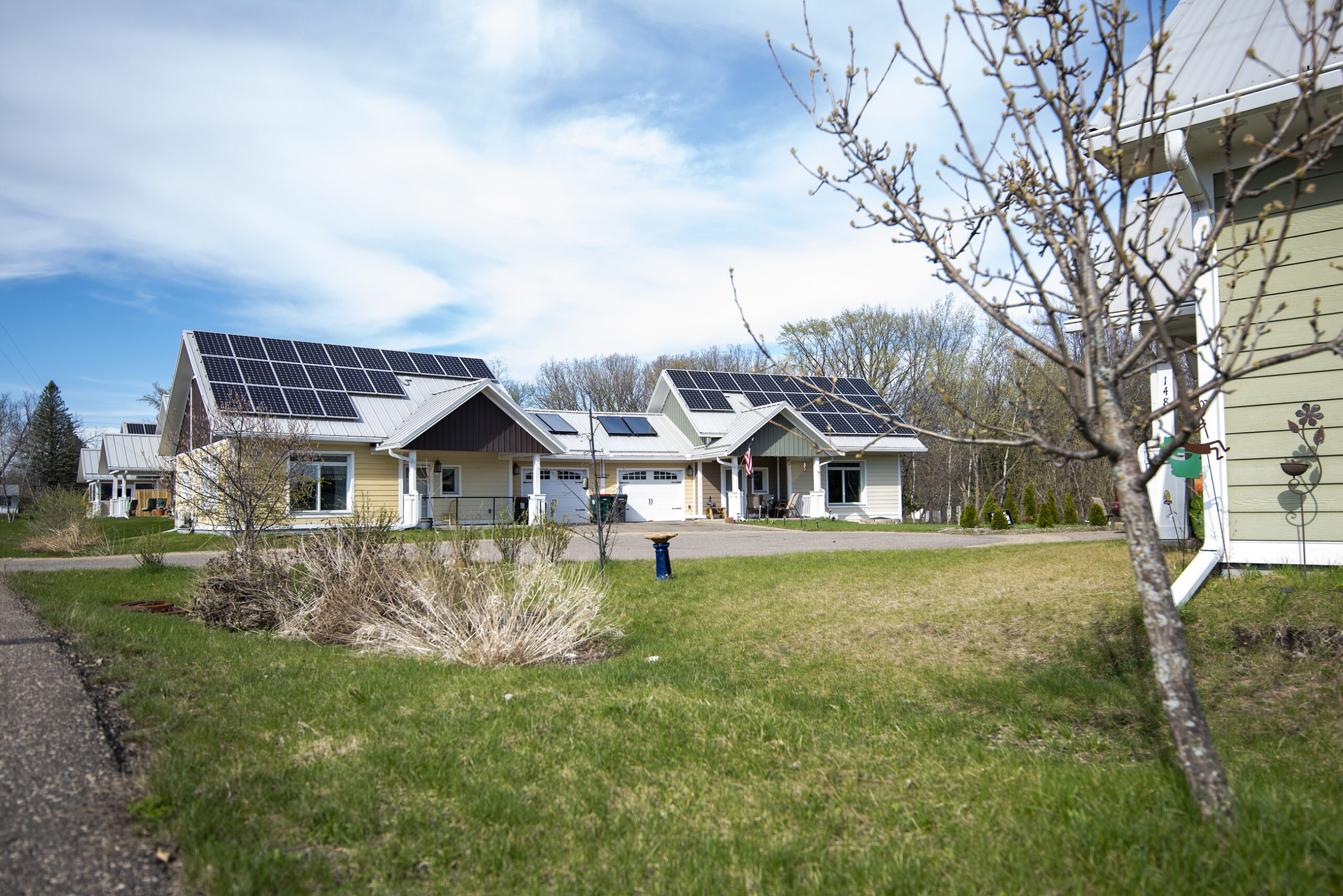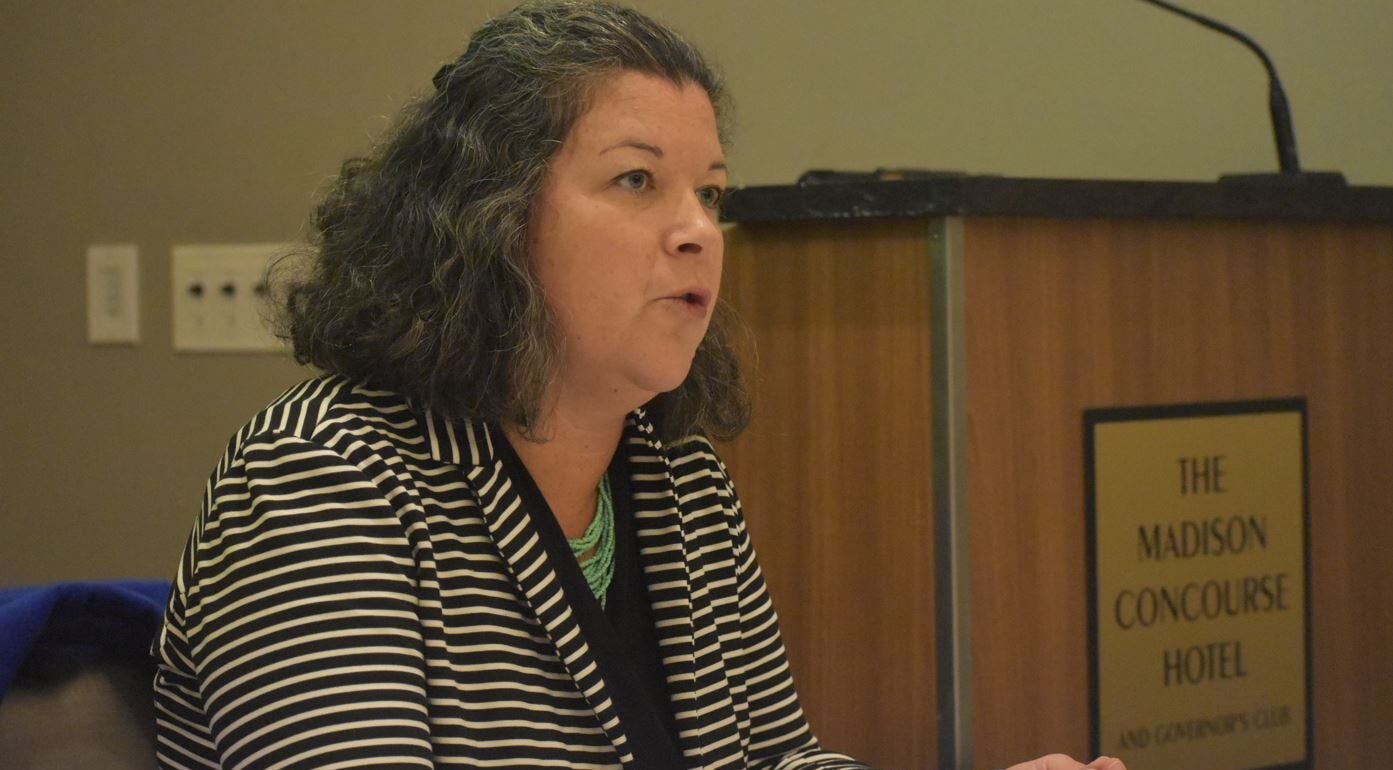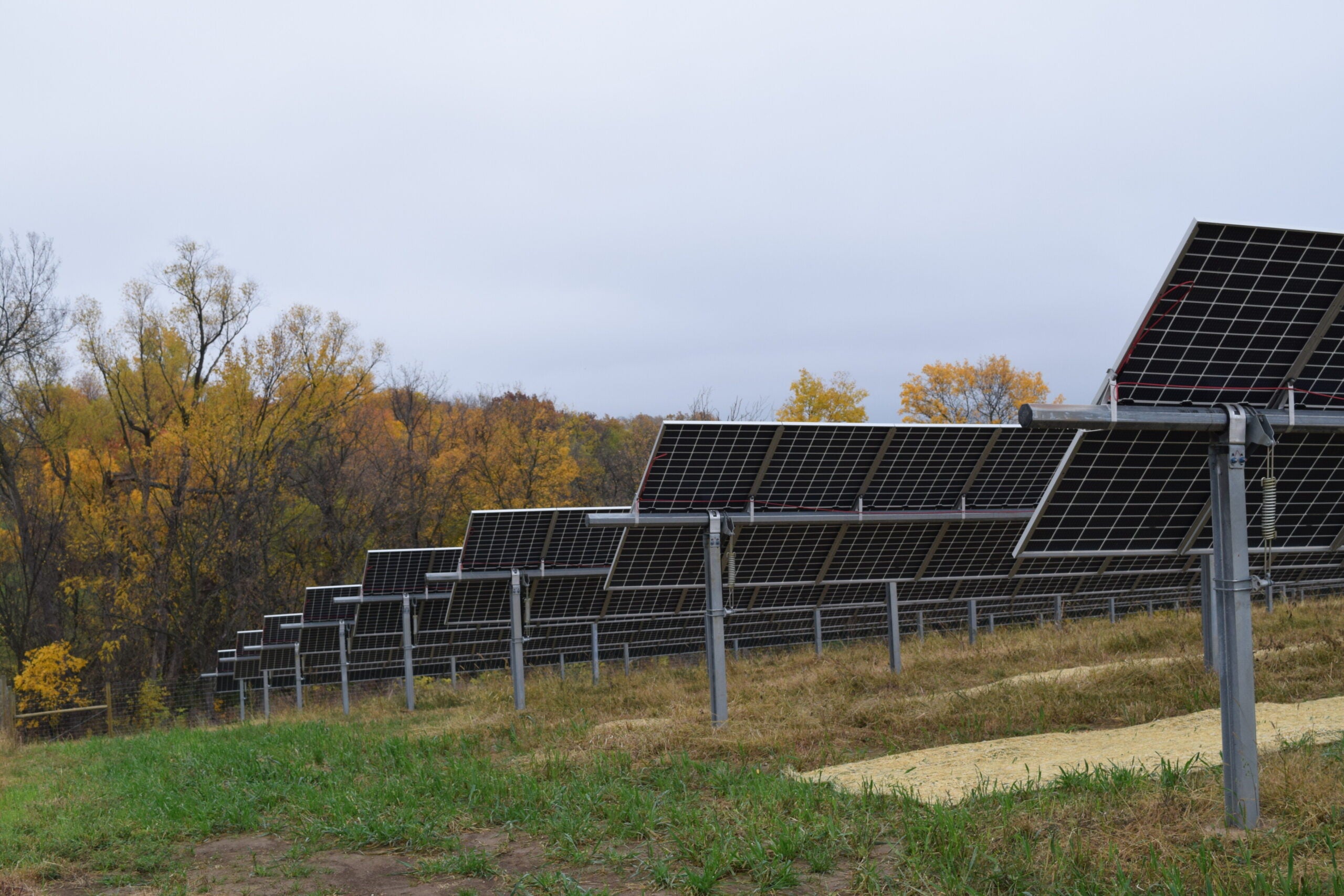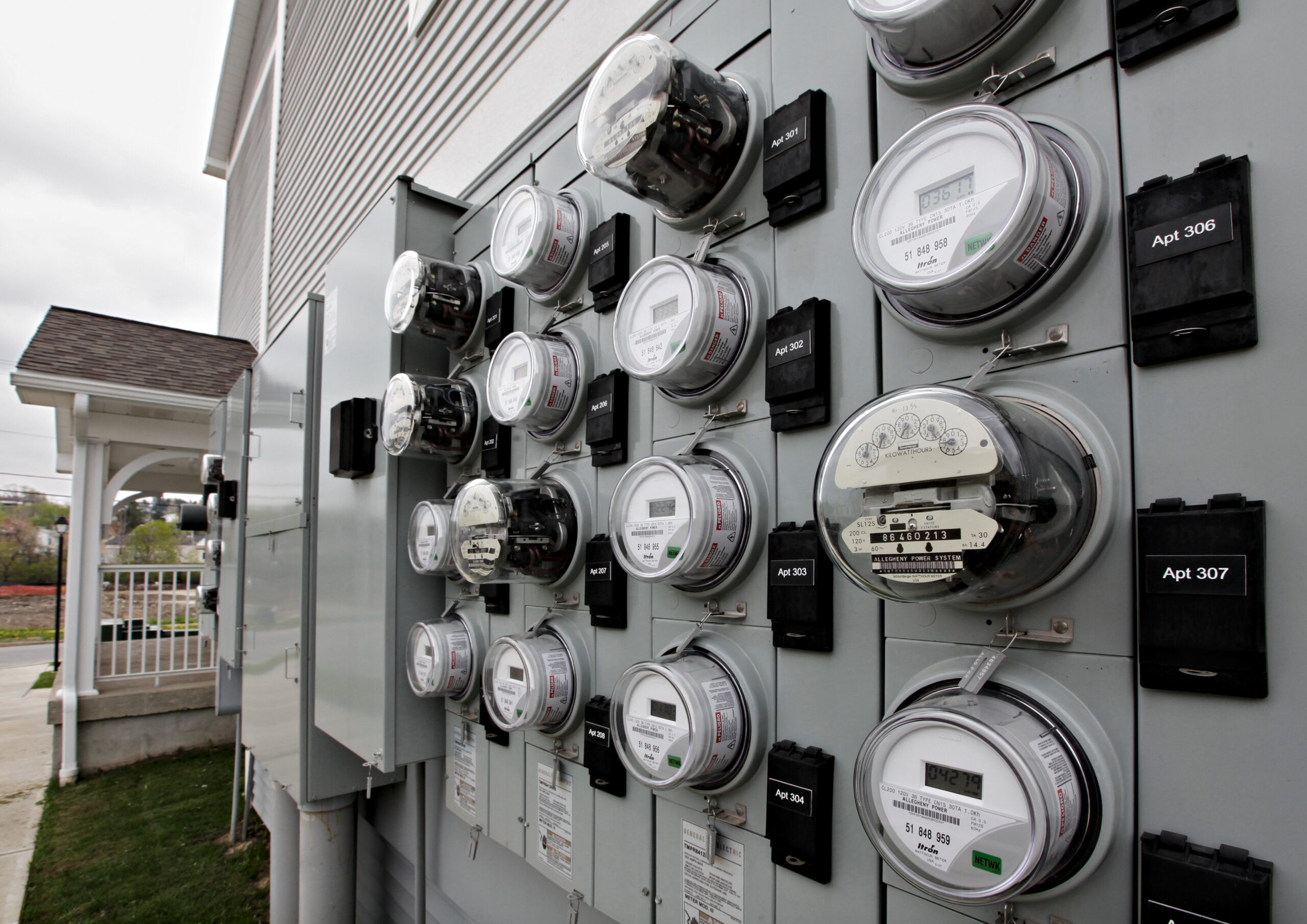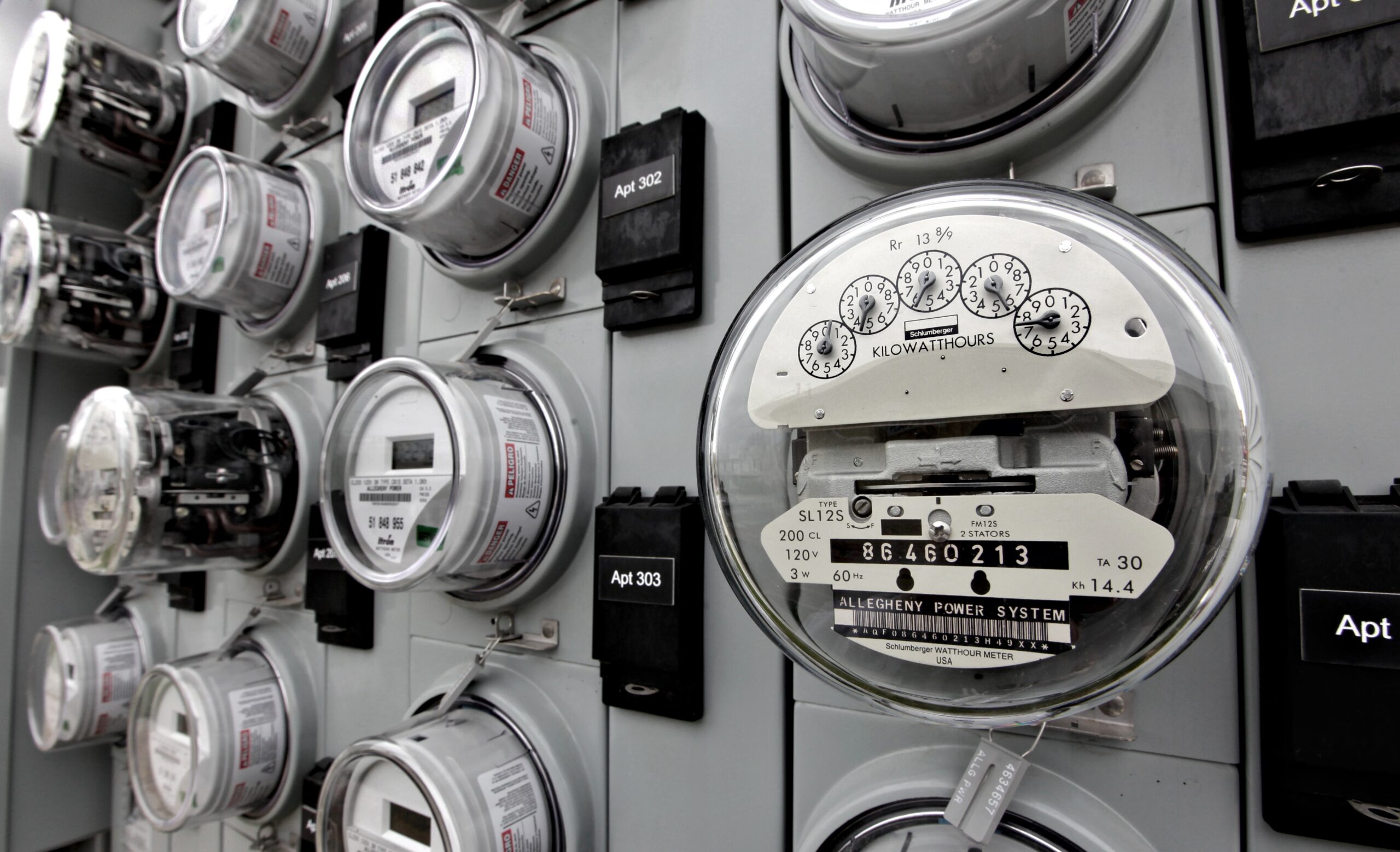The Public Service Commission of Wisconsin last week rejected a proposal by Madison Gas & Electric that would have changed how the utility reimburses residential solar owners for energy they put back into the grid.
State regulators are expected to make a decision on a different utility’s proposal to change solar reimbursement later this week.
Madison Gas & Electric, or MGE, included the proposal in its request to increase electric rates for 2024 and 2025. The mechanism that credits solar owners for the electricity they add to the grid is known as net metering.
News with a little more humanity
WPR’s “Wisconsin Today” newsletter keeps you connected to the state you love without feeling overwhelmed. No paywall. No agenda. No corporate filter.
MGE has said its net metering proposal sought to merge billing rates for large and small solar energy systems through a pilot program. Under the current structure, large-system customers receive 7.5 cents per kilowatt-hour generated into the grid, while residential customers receive 13 cents per kilowatt-hour, according to a document filed with the commission. Under the proposal, new residential customers would have received rebates more in line with those of large business customers.
The proposal faced opposition from numerous customers during public hearings earlier this year, as well as in written comments following the hearings.
At the PSC’s meeting last Friday, Commissioner Tyler Huebner said net metering received “the most attention” of any issue in MGE’s rate case, with hundreds of public comments from utility customers, local governments, advocacy groups and more.
Commissioners unanimously rejected MGE’s net metering proposal, and ordered an investigation into net metering that will include — but is not limited to — conducting a cost-benefit analysis study and/or conducting a value of solar study.
“Based on the information that was put into the record about the need for Wisconsin to have a consistent approach to net metering, I would not approve the applicant’s proposal,” said PSC chair Rebecca Cameron Valcq.
MGE was granted an overall electric rate increase of 5.7 percent split over 2024 and 2025. A spokesperson for the utility said MGE will review the PSC’s written decision, which will be issued by the end of the year.
Environmental groups have framed the PSC’s net metering decision as a win for clean energy in Wisconsin.
Andrew Kell, policy director for renewable energy advocate RENEW Wisconsin, said MGE’s proposal would have increased the amount of time it takes to recoup the cost of solar panel installation from between nine and 12 years to more than 16 years.
“The payback period analysis is absolutely crucial for an economic decision as to whether or not that customer goes solar,” he said. “The more that payback period is 10 years or less, for example, the more likely they are to make that investment in the solar on their rooftop and ensure that they can control their utility bills and make carbon reductions at the same time.”
Likewise, 350 Wisconsin, a nonprofit focused on climate and environmental justice, also praised the PSC’s net metering decision.
Stephanie Robinson, the organization’s co-executive director, said MGE’s proposal would have undermined one of the best ways of encouraging rooftop solar.
“We want to see solar be more accessible and affordable to low- and moderate-income people,” she said. “Especially with some of the new rebates that are going to be available through the Inflation Reduction Act, we felt it was not the time to undermine people’s ability to invest in solar.”
In a separate rate case, Alliant Energy proposed moving from monthly to hourly net metering that refunds customers based on when they’re generating excess energy into the grid. Excess energy during peak demand times would receive higher reimbursement than excess energy during low demand times.
The PSC is slated to review Alliant’s rate case Thursday. Like MGE, Alliant’s proposal faced criticism from customers at recent public hearings, where some called it confusing and said it would dissuade solar adoption.
Dan Gustafson, senior staff attorney for the nonprofit law center Midwest Environmental Advocates, said his firm opposes Alliant’s net metering proposal.
He said the commission’s decision to reject MGE’s net metering proposal and open an investigation into the future of the policy could indicate similar plans for Alliant’s proposal, but “it’s hard to say at this point.”
Robinson and Gustafson said Wisconsin currently has a fragmented approach to net metering, where specific policies and reimbursement rates vary from utility to utility. They hope the state will move to a uniform model as a result of the PSC’s investigation.
“We should do this in a statewide process, and come up with a consistent approach for all utilities rather than doing it in a piecemeal fashion,” he said. “I’m not sure whether the commission is there or not — I hope so — and we’ll see Thursday whether that’s the case.”
Wisconsin Public Radio, © Copyright 2025, Board of Regents of the University of Wisconsin System and Wisconsin Educational Communications Board.

